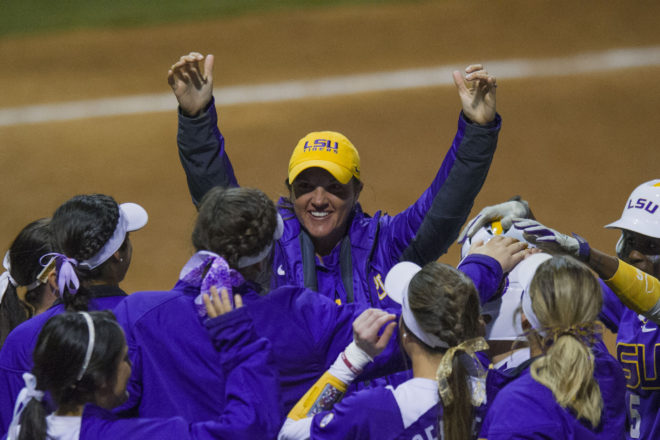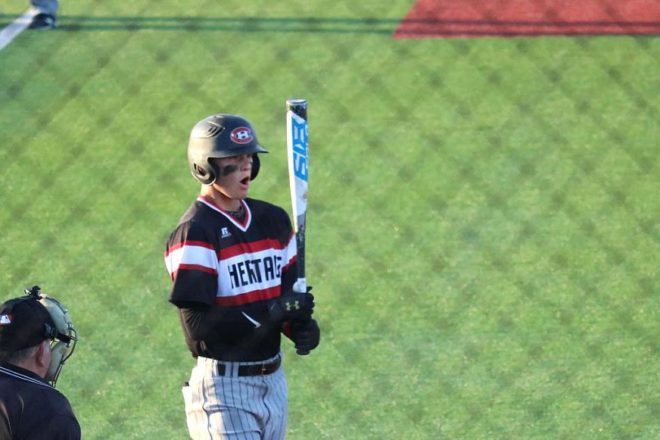Your mindset is how you see yourself, your situation, and the world.
And it’s not set, or as I call it fixed.
Your mindset can change and grow.
But, it’s not going to grow by itself. You need to develop it, and you need to know how to coach your players to develop theirs.
National Champions have elite mindsets that are dynamic because they know how to grow and develop their mindsets. Helping your athletes develop an elite mindset by embracing the belief that they are in control of their own ability and can learn and improve is the key to long-term success.
Here’s four strategies on how to coach your players into nation champions who have elite mindsets:
#1 Don’t praise ability.
The 8 teams who make it to Omaha are all talented. But talent isn’t what wins championships. Effort wins championships. Explosive and gifted athletes are great to have on a team. But it’s effort that wins championships. Because effort is what grows talent. Imagine a 10-year-old thinking he doesn’t ever need to put in effort to grow because his little-league coach told him how talented he was. Do you want a 10-year-old pitching at Omaha? No. Because talented 10-year-olds still need to grow in order to succeed at the next level. The same goes for any age. The ability to grow and develop never ends. Coach your players to believe that growth is always possible. Praising the effort encourages more effort from everyone and can make a big impact over time.#2 Increase awareness of what elite mindsets look and sound like.
Players with elite mindsets act and talk differently than players with fixed (or average) mindsets. If you want to encourage elite mindset and growth, then you and your players will need to talk and walk in elite ways. Hang a poster comparing elite mindset actions to average mindset actions. When you witness average mindsets in action, refer to the poster and redirect your players to emulate an elite mindset. For example: Athletes with an elite mindset stay patient in the face of adversity. Average mindsets get out of control mentally and emotionally. Did someone curse an umpire, slam their helmet, complain about the crowd or throw something across the dugout? Those aren’t the actions of an elite mindset. Athletes with an elite mindset do a little a lot. Average mindsets do a lot a little. Does your best hitter always show up at practice late? Is he always the last one in conditioning or last to get off the field and arrive at the dugout at the end of an inning? That player might have talent, but all those other “little” actions matter more over the long term, that’s the process at work. All the “little” things that are done a lot is what wins championships. Do a little a lot. Athletes with an elite mindset focus on controllables. Average mindsets focus on non-controllables. Is someone complaining about the umpire? The sun? The chatter in the other dugout? These are all non-controllables. Coach your players to know what it is they can control and what they can’t control. And then focus on what can be controlled. Athletes with an elite mindset learn from losses. Average mindsets get mad about losses. How do you players act after a loss? If they become fascinated instread of frustrated and curious as to why they lost and what they can do better next time, then they have an elite mindset. Coach the lessons.#3 Talk about and Keep a Journal with all the Lessons.
Losses hold Lessons. After every game – including a loss – give your players team time to reflect about what they did well, what they can do better, and how they will do better next time. Did someone make a mental error on the field? Did someone kick a routine grounder? Did someone not run hard out of the box and miss a free 90feet? Talk about what your players can do better and how they can do better next time. But, also be sure to highlight what they did well. It’s a well, better, how reflection process or some players I work with will even keep this in a journal. Well, Better, How Journals work great for after specific events – games, practices, workouts. But there is another type of journal that is great for overall growth and development of an elite mindset. It’s called the Start, Stop, Continue Journal. Coach each player to know what it is they want and how they can achieve what they want. What will they have to start doing, stop doing, and continue doing to get there? Doing this provides ownership of the changes your players need to make in order to achieve their goals. After a loss, or a weekend series sweep you can simply ask them how they are doing with their start, stop, continue process. That question always brings them back to what they can control which is the foundation of an elite mindset. Be sure to have a team Start, Stop, Continue reflection periodically through out your season as well. As your first goal, talk about Body Language, Competitiveness and Culture. Those are always sure to kick start a great conversation.#4 National Champions have a Detailed Process and BIG Body Language
How do your players hold their bat while they are walking to their at-bat? When do they put their helmet on and start getting their timing off the pitcher? How do they walk back to the dugout after a strikeout? When do they take their batting gloves off? All of this matters. National Champions have BIG Body Language and that’s intentional If you watch the NCAA Super Regionals and the games played in Omaha, you’ll see intentional BIG Body Language… From the teams that win. In Omaha, be on the lookout for:- The next 4 batters all wearing their helmets, holding their bats, working on their timing with the pitcher.
- The batter walking up to his at-bat holding his bat with his dominant hand, eyes forward, back straight, walking BIG.
- The pitcher doing his pre-batter routine – eyes focused somewhere on a focal point, feet wiping the rubber to signify getting present and locking into this pitch, hands rubbing the ball to wipe away the last pitch.
- The catcher giving energy back to his pitcher and humming the ball to 1st Base after the 3rd out of the inning it it’s a strike out.
- The infield throwing the ball around between innings and after a strikeout at a game like pace and competitive intensity.



